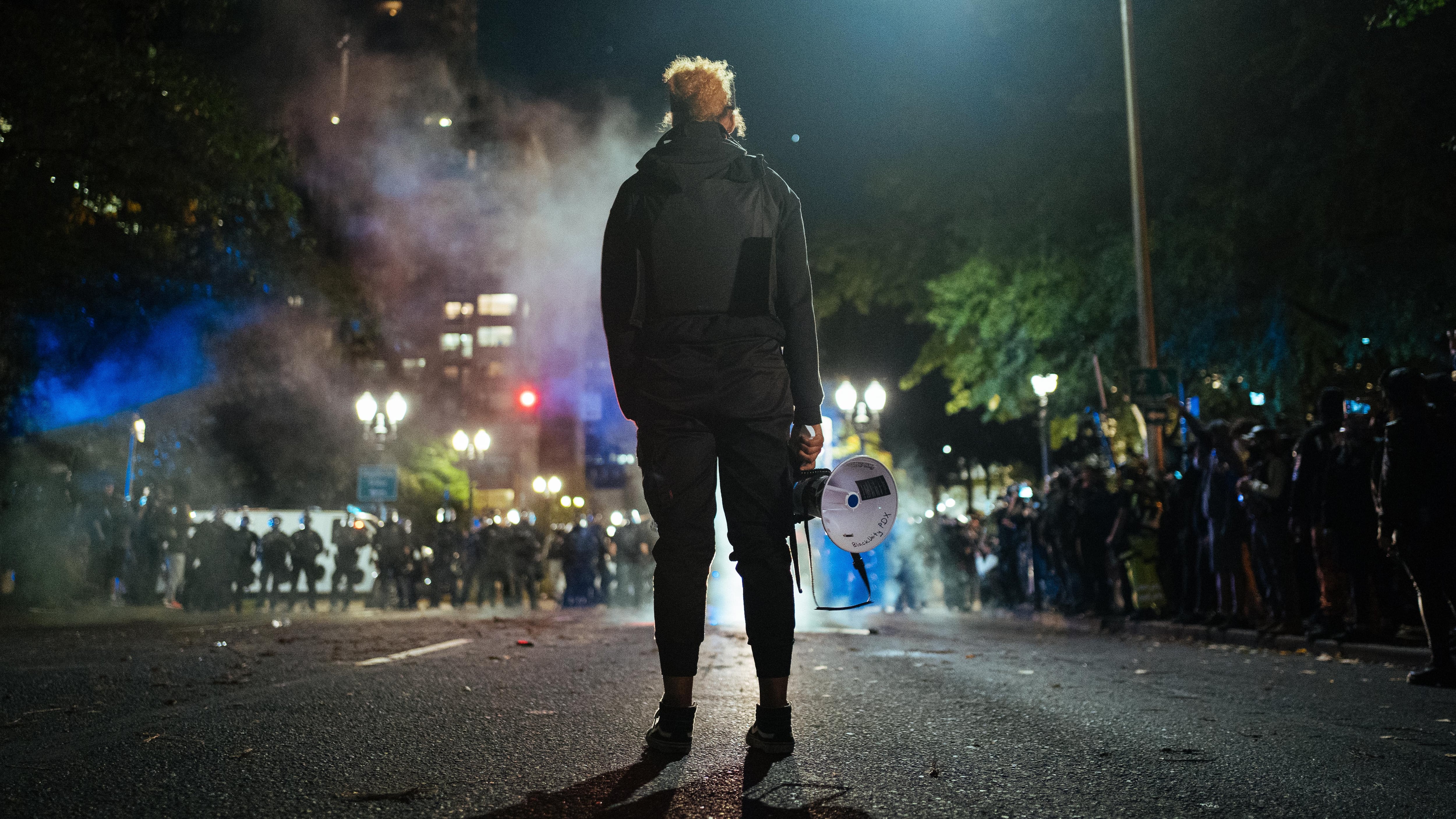Last weekend, Gov. Kate Brown invoked her emergency authority to place Oregon State Police Superintendent Travis Hampton and Multnomah County Sheriff Mike Reese in charge of a joint command responsible for dealing with a Proud Boys rally in North Portland that officials worried could lead to violence.
One of strangest aspects of the largely successful response to the Sept. 26 rally was the decision to deputize about 50 Portland Police Bureau officers as deputy U.S. marshals for the rest of the calendar year.
The practical effect of that deputization is that if Portland officers are injured during a protest, the assailants could be more easily charged in federal court, where the penalties are stiffer.
The feds' chief prosecutor in the state, U.S. Attorney for Oregon Billy Williams, has also expressed far greater enthusiasm for charging protesters than his local counterpart, Multnomah County District Attorney Mike Schmidt. And when deputized PPB officers make arrests at protests for any reason, their quasi-federal status allows federal prosecutors to review the cases automatically, rather than wait to have them referred from the state system, as is normally the case.
As Oregon Public Broadcasting reported Sept. 29, the length of the deputization surprised city officials, including the police commissioner, Mayor Ted Wheeler. They thought the federal designation for Portland officers was just for the weekend.
"At this time, the governor's executive order has terminated, and the Portland Police Bureau is back under the control and direction of the city of Portland, and specifically Police Commissioner and Mayor Ted Wheeler and the Portland City Council," City Attorney Tracy Reeve wrote to federal officials earlier this week, according to an email obtained by OPB. "The city of Portland does not consent to the continuing federal deputization of PPB officers and hereby formally withdraws its consent to this deputization effective immediately."
That has not yet happened. Which leads to a question: Did Gov. Brown, whose relationship with Wheeler has often been tense, set out to wrest control of PPB's response to the nightly Black Lives Matter protests away from the mayor?
Brown's spokesman Charles Boyle says that's not the case. "No state of Oregon agency––not the governor's office, not the Oregon State Police––makes those decisions," Boyle says. "The state of Oregon does not make intra-agency decisions for local law enforcement agencies, including whether those agencies choose to deputize their officers. The joint incident command structure did not change that fact."
Boyle says Brown simply sought the most effective response to the Sept. 26 rally and left tactical details to Hampton and Reese.
"With their decades of experience as law enforcement professionals, she entrusted the joint incident commanders, along with [Portland Police] Chief [Chuck] Lovell, with the operational details of the joint command," Boyle says, adding that OSP Superintendent Hampton was the person who asked that PPB officers become deputized.
"It's my understanding that Superintendent Hampton made the request that Chief Lovell and Sheriff Reese seek the deputization of Portland and Multnomah County officers," Boyle says. "My understanding is that, at the time, city, state and county law enforcement leadership was in alignment on that issue and that no objections were raised to the deputizations."
Because OSP troopers had already been deputized when they came to assist in response to Portland protests in July, Boyle says, Brown was not involved in discussions about deputizing officers for the past weekend.
Hampton explained his thinking regarding PPB officers in a Sept. 30 statement. "It was determined some Portland police officers should be deputized as U.S. marshals, so there was increased prosecutorial discretion if rioters should assault an officer," he wrote. In other words, federal prosecutors could decide to charge protesters with crimes—taking the decision out of the hands of progressive Multnomah County DA Schmidt.
But the decision to grant Hampton's request was up to federal officials. "Federal deputization—including deciding which local law enforcement officers to deputize and for how long––is a federal process, overseen by the U.S. Attorney's Office and the U.S. Marshals [Service]," Boyle says.
After that decision was made, federal officials are unwilling to reverse it, despite City Hall's wishes.
On Sept. 30, U.S. Attorney Williams and U.S. Marshal for Oregon Russ Burger issued a statement saying they would not "un-deputize" those officers. In the statement, the two federal officials took a swipe at Wheeler and his City Council colleagues.
"The U.S. marshal will not cancel the cross-deputation of local and state law enforcement officers," Burger and Williams wrote. "Importantly, the federal deputation supports frontline law enforcement officers and their families in a way that they have not seen from City Hall."
Boyle, the governor's spokesman, says that any concerns about local authority being usurped are overblown.
"All state and local law enforcement officers deputized are still Oregon State Police troopers, Portland Police Bureau officers, and Multnomah County Sheriff's Office deputies, respectively," he says. "Regardless of whether they have been federally deputized, they still must report to their local chain of command and must follow their agency's policies and Oregon law."
